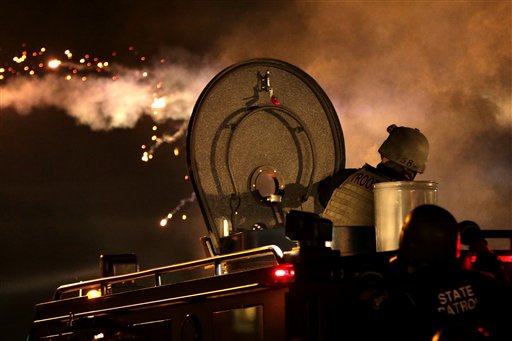Tennessee law enforcement agencies have $121 million in military surplus
Sunday, August 24, 2014
NASHVILLE - Since 1993, Tennessee law enforcement agencies have received more than 41,000 military surplus items worth at least $121 million, much of that going to the state's smaller cities and counties.
According to a Tennessean report based on data from the state Department of General Services, the Washington County Sheriff's Office leads the pack at $9.7 million in equipment. That includes the state's single priciest item, a $5 million communications system.
Following are the Loudon County Sheriff's Office with $8.1 million, Livingston Police with $4.5 million, Parsons Police with $4.2 million and the Coffee County Sheriff's Department with $3.8 million.
There are 31 mine-resistant trucks in the state, including in Lebanon, Gallatin and Hendersonville. More than 300 M-14s and M-16s have been distributed to Tennessee agencies through the surplus program.
In addition to the surplus, Tennessee agencies have received more than $200 million in Homeland Security grants since 2003, much of it used to buy similar equipment. But while the money going to those grants has gone down considerably in recent years, the amount available in military surplus has spiked as the wars in Iraq and Afghanistan have wound down. In Tennessee, agencies went from receiving $9.2 million in surplus goods in 2012 to $63.3 million this year.
Over the past nine years, Tennessee has moved from 47th in the nation to the top 10 in acquiring military surplus.
Eugene O'Donnell is a professor of law and police studies at John Jay College of Criminal Justice in New York. He's also a former New York City police officer and prosecutor.
O'Donnell said putting military gear into the hands of police and deputies raises some alarms for him.
"It's obviously going to be a very difficult issue to navigate through," he said. "But I think most Americans don't necessarily mind supportive-type equipment, like helicopters.
"Defensive stuff, I think, may not look good, but there's probably a case for some of this armor to be worn."
Monitoring how police use their high-powered equipment could build public trust, O'Donnell said, but he wasn't sure that would happen.
"I don't know if (the military) can hand this stuff out and micromanage it."

